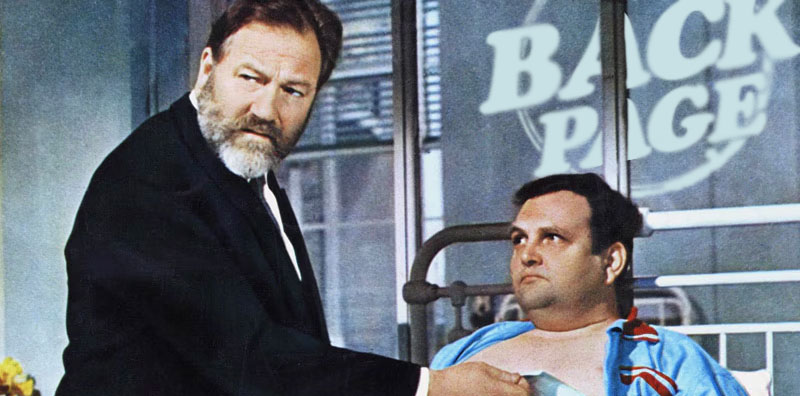My dad and I came from a long line of forelock-tuggers. And then a doctor disrespected his mum and everything changed.
Picture it. It’s 1959 in Sunbury, a working-class suburb of London.
My grandmother, Gladys Swannell, née Nightingale, is lying in her bed being tended to by a well-heeled, three-piece-suit-wearing old-school English doctor of the type made famous by the 1954 comedy film Doctor in the House.
Think Sir Lancelot Spratt but with less charm.
Glad, as she was known – not by me, you understand; I wasn’t even a twinkle in my parents’ eyes at that point – was 54 years old and had a panoply of medical woes, including a history of alopecia and “heart trouble”.
What that heart trouble was exactly was never made clear to me, but given my history and my dad’s it probably involved hypertension and atrial fibrillation. All I know is that by the time I came along and was cognisant enough to notice, she was taking enough daily pills of all shapes and colours to sink a battleship.
On this particular occasion, Sir Lancelot was giving her a gob-full of patronising advice which was completely tone-deaf about Glad’s circumstances and took advantage of her reverence for all doctors.
“You must stay off your feet, Mrs Swannell.” Completely ignoring the fact that her job behind the cashier’s till at the local butcher’s shop was the only thing putting food on the table.
Enter my then 21-year-old father, fresh from a couple of years at university (first in his family, ever, and of the first post-war generation to benefit from free tertiary education) and full of the bolshie muscular C of E Christianity that was gripping his cohort.
Suffice to say Sir Lancelot came nose-to-nose, literally, with an angry young man who had plenty to say about the pomposity of the medical profession and the benefits of actually listening to a patient. Well chosen words were exchanged and Sir Lancelot headed for the hills.
Glad was mortified, because to speak back to a doctor was to speak back to God, as far as she was concerned.
I’m not sure what the consequences were for Glad – she made it to 1973 before a likely heart attack caused her to headbutt a mantelpiece, leading to her demise at age 68.
The consequences for Dad were that he never addressed a doctor as “doctor” again, and had a hard time accepting that a medico might know a bit more than he did about his own body – something that probably did him no favours in his last few years when the medical profession began to dominate his life.
But what an illustration of the history of the doctor-patient relationship.
A visit to my cardiologist last week saw me chipping my 30-something doctor, who was making a rare appearance in scrubs, for looking “particularly doctor-y” and reminding him of the time it took him six goes to get a cannula in my hand.
“I was nervous,” he pouted.
Is that about the fact I’m a good 25 years older than him? Or have I always kidded around with my doctors (yes)?
Is that about the fact I’m a medical journalist so can hold my own in a conversation about my treatment (yes)?
Am I just a cheeky bugger (also, yes)?
Or have I learned from an early age that doctors are humans too, might appreciate being treated as one, and that makes it easier for me to trust them when they have my life in their hands?
A resounding yes.
Send story tips about your feet of clay to penny@medicalrepublic.com.au.


